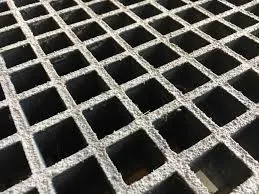
-
 Afrikaans
Afrikaans -
 Albanian
Albanian -
 Amharic
Amharic -
 Arabic
Arabic -
 Armenian
Armenian -
 Azerbaijani
Azerbaijani -
 Basque
Basque -
 Belarusian
Belarusian -
 Bengali
Bengali -
 Bosnian
Bosnian -
 Bulgarian
Bulgarian -
 Catalan
Catalan -
 Cebuano
Cebuano -
 China
China -
 China (Taiwan)
China (Taiwan) -
 Corsican
Corsican -
 Croatian
Croatian -
 Czech
Czech -
 Danish
Danish -
 Dutch
Dutch -
 English
English -
 Esperanto
Esperanto -
 Estonian
Estonian -
 Finnish
Finnish -
 French
French -
 Frisian
Frisian -
 Galician
Galician -
 Georgian
Georgian -
 German
German -
 Greek
Greek -
 Gujarati
Gujarati -
 Haitian Creole
Haitian Creole -
 hausa
hausa -
 hawaiian
hawaiian -
 Hebrew
Hebrew -
 Hindi
Hindi -
 Miao
Miao -
 Hungarian
Hungarian -
 Icelandic
Icelandic -
 igbo
igbo -
 Indonesian
Indonesian -
 irish
irish -
 Italian
Italian -
 Japanese
Japanese -
 Javanese
Javanese -
 Kannada
Kannada -
 kazakh
kazakh -
 Khmer
Khmer -
 Rwandese
Rwandese -
 Korean
Korean -
 Kurdish
Kurdish -
 Kyrgyz
Kyrgyz -
 Lao
Lao -
 Latin
Latin -
 Latvian
Latvian -
 Lithuanian
Lithuanian -
 Luxembourgish
Luxembourgish -
 Macedonian
Macedonian -
 Malgashi
Malgashi -
 Malay
Malay -
 Malayalam
Malayalam -
 Maltese
Maltese -
 Maori
Maori -
 Marathi
Marathi -
 Mongolian
Mongolian -
 Myanmar
Myanmar -
 Nepali
Nepali -
 Norwegian
Norwegian -
 Norwegian
Norwegian -
 Occitan
Occitan -
 Pashto
Pashto -
 Persian
Persian -
 Polish
Polish -
 Portuguese
Portuguese -
 Punjabi
Punjabi -
 Romanian
Romanian -
 Russian
Russian -
 Samoan
Samoan -
 Scottish Gaelic
Scottish Gaelic -
 Serbian
Serbian -
 Sesotho
Sesotho -
 Shona
Shona -
 Sindhi
Sindhi -
 Sinhala
Sinhala -
 Slovak
Slovak -
 Slovenian
Slovenian -
 Somali
Somali -
 Spanish
Spanish -
 Sundanese
Sundanese -
 Swahili
Swahili -
 Swedish
Swedish -
 Tagalog
Tagalog -
 Tajik
Tajik -
 Tamil
Tamil -
 Tatar
Tatar -
 Telugu
Telugu -
 Thai
Thai -
 Turkish
Turkish -
 Turkmen
Turkmen -
 Ukrainian
Ukrainian -
 Urdu
Urdu -
 Uighur
Uighur -
 Uzbek
Uzbek -
 Vietnamese
Vietnamese -
 Welsh
Welsh -
 Bantu
Bantu -
 Yiddish
Yiddish -
 Yoruba
Yoruba -
 Zulu
Zulu
'corrosion-resistant fiberglass for enduring durability.'
Corrosion-Resistant Fiberglass for Enduring Durability
In today's industrial age, materials that can withstand the test of time and environmental challenges are paramount. Among such materials, corrosion-resistant fiberglass stands out as an exemplary choice for a wide array of applications. Its unique properties not only enhance durability but also significantly reduce maintenance costs and extend the life span of structures and components.
Corrosion is a pervasive problem faced by various industries, especially those involving exposure to chemicals, moisture, or saline environments. Traditional materials, such as metals, are often vulnerable to degradation when subjected to these conditions. This is where corrosion-resistant fiberglass excels. Made from a composite of glass fibers and resin, fiberglass is engineered to resist deterioration from aggressive substances, making it ideal for use in harsh environments.
One of the primary benefits of corrosion-resistant fiberglass is its weight-to-strength ratio. This lightweight material does not compromise on strength; it can endure substantial stress while remaining easy to handle and install. This is particularly advantageous in construction and transportation, where reducing weight without sacrificing structural integrity can lead to significant efficiencies and cost savings.
'corrosion-resistant fiberglass for enduring durability.'

Additionally, fiberglass is non-conductive, making it a safe option for electrical applications. It does not rust or corrode, which means that it maintains its structural integrity over time, reducing the risk of failure. As industries such as marine, chemical processing, and wastewater treatment expand, the demand for durable materials that can withstand corrosive elements is rising. Fiberglass fits this need perfectly, providing a long-lasting solution that minimizes the risk of environmental contamination and structure failure.
Another notable attribute of corrosion-resistant fiberglass is its versatility. It can be molded into various shapes and sizes, which means it can be tailored to meet specific project requirements. Whether it's for constructing pipelines, storage tanks, or supporting structures, fiberglass can be customized to ensure maximum efficiency and performance. Furthermore, advancements in manufacturing processes have led to the development of reinforced fiberglass, which offers even greater strength and resistance to extreme conditions.
In terms of sustainability, fiberglass is often considered a more environmentally friendly option compared to traditional materials. Its long lifespan reduces the need for frequent replacements, which in turn minimizes waste and lowers the carbon footprint associated with manufacturing and disposing of materials.
In conclusion, corrosion-resistant fiberglass is an invaluable material for industries facing the challenges of durability and environmental resistance. Its unique properties not only enhance the longevity of structures but also offer economic benefits through reduced maintenance and replacement costs. As the demand for sustainable and reliable materials continues to grow, fiberglass is poised to play a crucial role in building a more resilient future.









